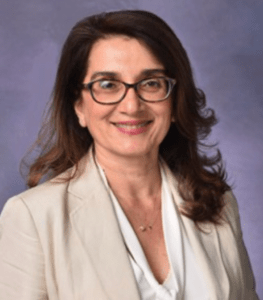
I recently attended a webinar presentation by Scott Galloway who teaches brand strategy and digital marketing at the NYU Stern School of Business. Professor Galloway was the keynote speaker at the ASU-GSV Summit, a virtual collaborative event between Arizona State University (ASU) and Global Silicon Valley (GSV) that strives to connect luminaries from the world of academe and tech with a focus on transforming society and business around learning and work. Prof. Galloway started his talk by raising the alarm that U.S. higher education is ripe for disruption.
If you haven’t heard of Professor Galloway, click here
Professor Galloway has a keen sense of predicting the future. He predicted Amazon’s purchase of WholeFoods a month before it was announced and predicted that WeWork’s $47 billion valuation will hurt the company and it did a month later. Now, during the COVID stage of our lives, Professor Galloway is focusing his attention on US Higher Education and sees it as teetering on the edge of collapse.
Prof Galloway argues that for 30 years higher education has been squeezing students financially with exorbitantly high tuition fees. We are all aware that student loans are crippling our college graduates. Millennials took out more student loans and defaulted on those loans more frequently than the generation before them. The student loan debt is currently at half a trillion dollars. Galloway notes that tuition costs have exploded by 1400% since 1978. That’s 1400%! And he shows this by comparing the MBA he received back when the cost was $4K for two years and the starting salary for the MBA graduate was $100K. Today, the cost for an MBA is $100K and the starting salary is $140K.
According to Galloway, if you come from the top 1% income earning households, you are 77% times more likely to attend an elite college. “The Ivy League is not about upward mobility or public service but a finishing school for the children of rich people,” Galloway adds. “Colleges have become luxury brands. Universities are adopting a strategy of artificial scarcity to create irrational margins,” he continued. University leadership and academics are no longer aspiring to be the public servants of yesterday but are the luxury brands of tomorrow. He admits that he is part of the problem and showed that for his Fall 2020 course on Brand Strategy at NYU’s Stern School of Business he has 170 students enrolled. The cost for his course is $7000 which means a total of $1.19 million or $100,000 per class every week every time he teaches it. He added that his agent takes 97% commission, meaning the gross margin is 90+%.
Watch Prof Galloway’s “The Rant: The College Implosion – No Mercy, No Malice,” on YouTube. He says it like it is.
Per Galloway, COVID 19 is the seismic shake the academic world needed to be jolted awake from its reverie. He argues that the biggest contributor to income inequality is student debt. What students and their parents are wondering is why they should be paying the high tuition for marginal online classes. After all, they are not paying for room and board and all the other addons of living and going to class on campus. And the colleges are struggling to justify their fees.
Galloway suggests these 4 action items:
- The luxury brand elite universities need to return to places where “unremarkable kids have the chance at a remarkable future.” Provide land grant funding for universities such as the University of California and University of Texas systems which have not lost their path and continue their role as public servants. Galloway mentioned that Berkeley will graduate more students this year who are from low-income households than the entire Ivy League combined.
- Stop bankrolling institutions that have massive endowments. Have in place criteria that threatens the loss of their non-profit status and taxation of their endowments if these institutions do not grow their freshman seats at a pace greater than population growth.
- End tenure.
- Make colleges more affordable for millions of middle and low-income students who join a volunteer service organization.
The measure of society as Galloway argues is not the opportunities afforded the remarkable, but how many unremarkable are given the opportunity to be remarkable. Let’s see if COVID-19, is in fact the meteor Galloway predicts that will rock the academic world forcing it to embrace a newer and more equitable and affordable model of access to higher education.

Jasmin Saidi-Kuehnert is the President and CEO of the Academic Credentials Evaluation Institute (ACEI).

The Academic Credentials Evaluation Institute, Inc. (ACEI), was founded in 1994 and is based in Los Angeles, CA, USA. ACEI is a full-service company providing complete and integrated services in the areas of international education research, credential evaluation, and translation.


